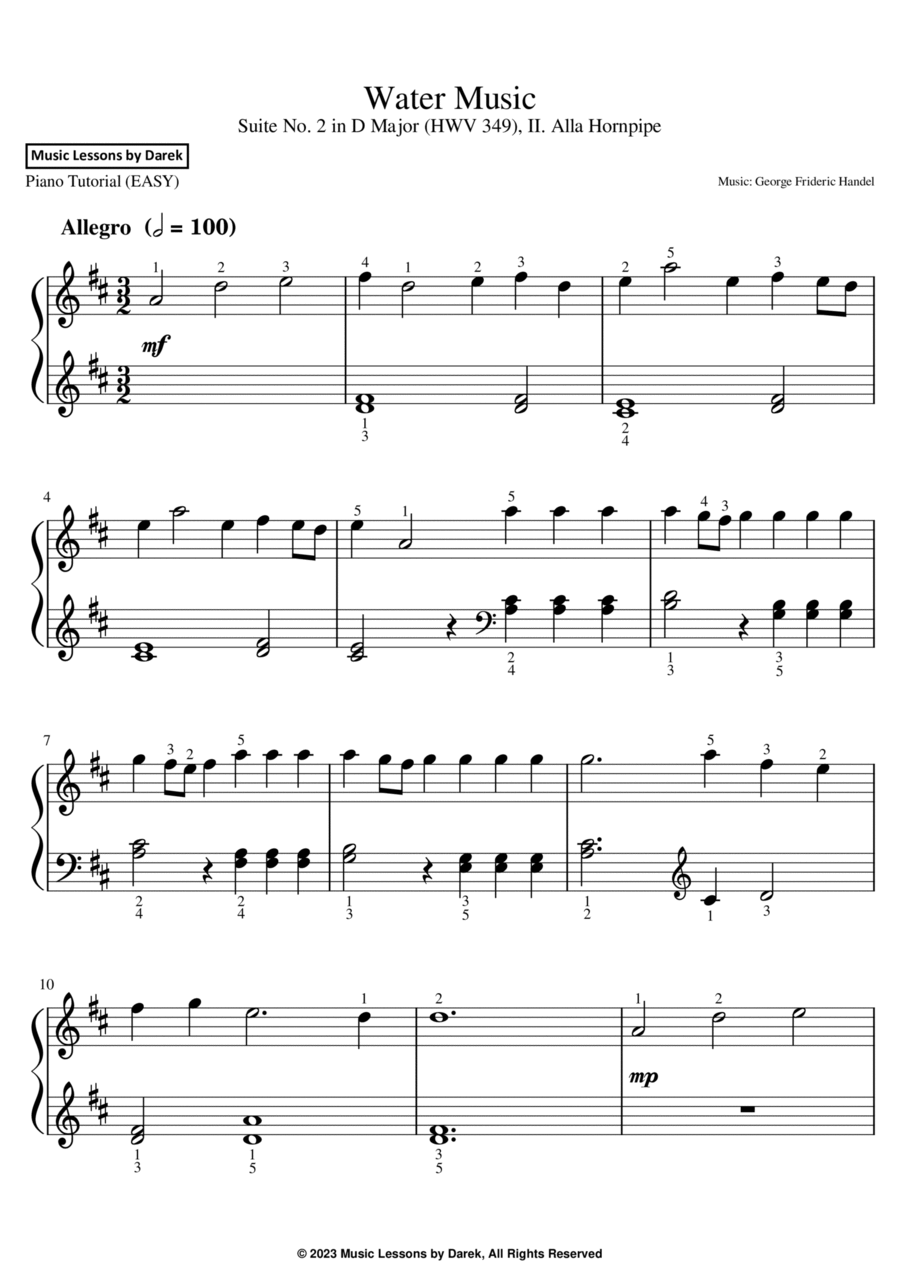Easy Piano - Level 2 - Digital Download SKU: A0.1271969 By George Frideric Handel. By George Frideric Handel. Arranged by Darek. Baroque,Classical,Early Music. Score. 3 pages. Darek #864325. Published by Darek (A0.1271969). Water Music (EASY PIANO) Suite No. 2 in D Major (HWV 349), II. Alla Hornpipe [George Frideric Handel]Simplified arrangement for pianists of Water Music Suite No. 2 in D Major (HWV 349), II. Alla Hornpipe by George Frideric Handel. Easy version for pianists | Easy piano arrangement | Beginner Version | Easy Piano Sheet Music For Beginners. Included: Fingering, Dynamics, Articulations and video YouTube tutorial. Experience the splendor of classical music with my Easy Piano Sheet Music collection, featuring Water Music Suite No. 2 in D Major (HWV 349), II. Alla Hornpipe by George Frideric Handel. Perfectly suited for beginner pianists, this delightful Easy Level arrangement invites you to revel in the lively and enchanting melodies of the Baroque era. Immerse yourself in the joyous rhythms of the alla hornpipe, meticulously crafted to ensure a gratifying and rewarding musical experience. With Fingering, Articulation, and Dynamics thoughtfully notated, you can effortlessly convey the piece's vivacity and musical brilliance. Enhance your learning journey with the included Youtube video tutorial, thoughtfully designed to guide you in mastering the alla hornpipe and perfecting your performance. Embrace the beauty of piano music and let the harmonious notes transport you to a world of elegance and artistry. As one of the Best Handel Pieces for beginner pianists, this sheet music promises a captivating and enchanting musical adventure. Delight in the charm of this timeless composition and embark on a musical journey that resonates with the essence of classical brilliance. Keywords: Sheet Music, Piano, Pianists, George Frideric Handel, Water Music Suite No. 2, HWV 349, Alla Hornpipe, Easy Level, Beginner Version, Baroque Era, Fingering, Articulation, Dynamics, Youtube tutorial, Music, Notes, Melodies, Classical Music, Lively Rhythms, Joyous Music, Enchanting Melodies, Baroque Music, Classical Composition, Piano Melodies, Easy Piano Arrangement, Music Tutorial, Handel's Suite, Video Lesson, Piano Practice, Artistic Performance, Timeless Music.
